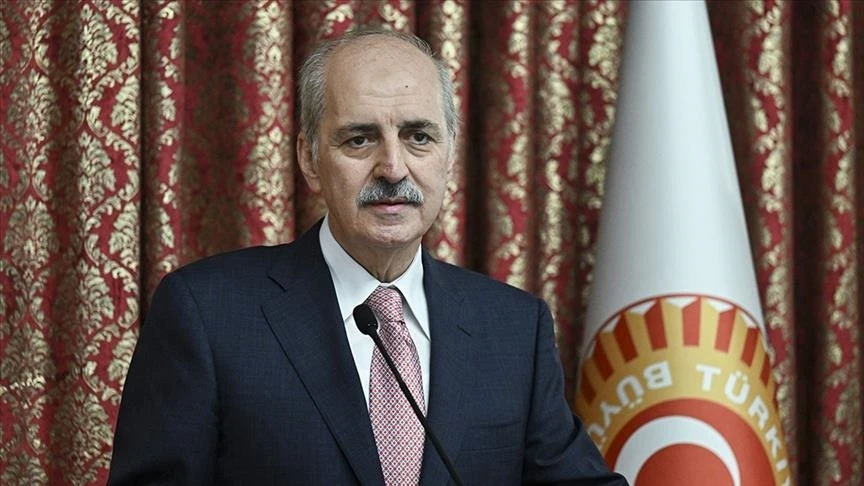Turkish Parliament speaker condemns Srebrenica Genocide on Remembrance Day
 Turkish Grand National Assembly Speaker Numan Kurtulmus strongly condemned the Srebrenica genocide today, marking the solemn Remembrance Day (AA Photo)
Turkish Grand National Assembly Speaker Numan Kurtulmus strongly condemned the Srebrenica genocide today, marking the solemn Remembrance Day (AA Photo)
Speaker of the Turkish Parliament, Numan Kurtulmus, emphasized the significance of Srebrenica Genocide Remembrance Day, calling it a “dark stain in human history” that occurred in the heart of Europe and was witnessed by the entire world.
Kurtulmus highlighted the significance of the U.N.’s decision on May 23, 2024, to recognize July 11 as “Srebrenica Genocide Remembrance Day.” In a post on social media platform X, he emphasized that this decision is a crucial step in ensuring that this tragedy is remembered and never forgotten.
On the 29th anniversary of the massacre, Kurtulmus expressed deep sorrow and mourning for these painful days in history, saying, “This tragedy, where nearly 8,500 Bosnian brothers were massacred in 1995, happened in the midst of Europe, visible to the world, and is one of the dark stains in human history. This genocide is a shared wound not only for the Bosniak people but for all humanity. While commemorating those who lost their lives in Srebrenica, I extend my condolences and patience to their families and loved ones.”
Drawing attention to similar atrocities continuing to occur, Kurtulmus underscored Israel’s attacks on Gaza, stating, “The inhumane attacks suffered by civilians in Gaza wound the conscience of all people of conscience.”
He added, “Just as the killers in Srebrenica were punished in international courts, today’s perpetrators of the Gaza massacre will surely pay the price for their cruelty. Fighting to prevent similar pains from recurring is a requirement of our belief in human dignity. We must act with a shared conscience and wisdom to share this pain and prevent its repetition.
We solemnly remember the innocent victims of Srebrenica and pledge to continue our determined struggle for a more just and peaceful future. As Alija Izetbegović said, ‘Do whatever you want, but do not forget genocide. Because a forgotten genocide repeats itself.’ We will not forget and will not let others forget the pains experienced in Srebrenica and Palestine.”



